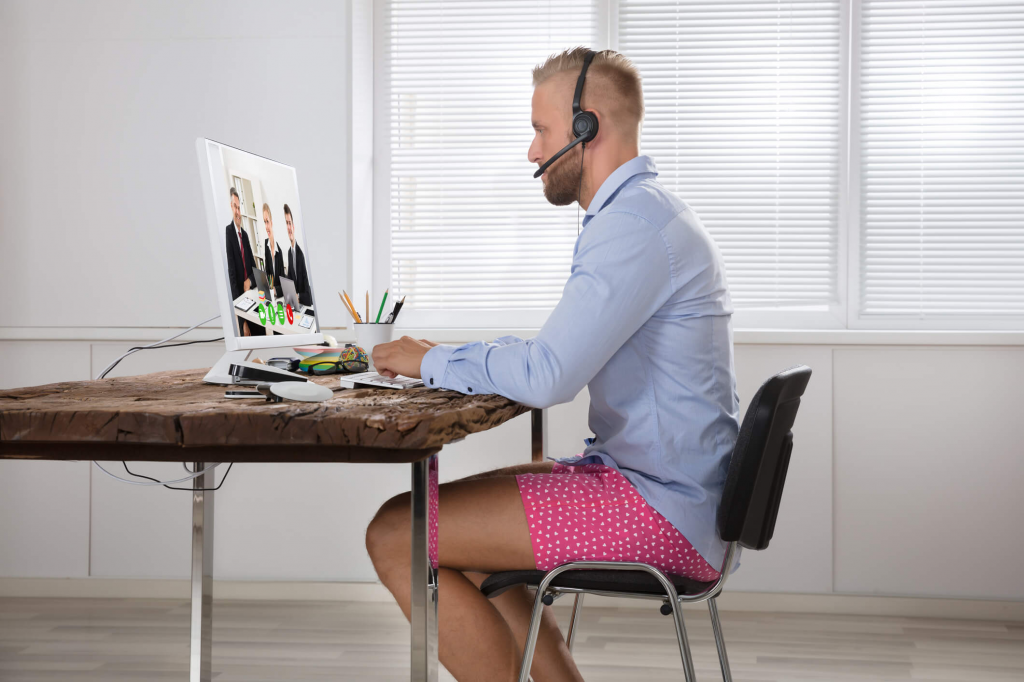Life and what is happening around now have forced us to speed up, but maybe this is for the best. Many of us have now found ourselves, perhaps not so much in quarantine, in the medical sense of the word, but in forced stay at home and remote work.
The reason, of course, is known - the coronavirus, but this reason is indirect. The situation and decisions of the government of our country have affected schools, kindergartens and even nurseries. The domino effect was instantaneous - kindergartens and nurseries were closed, children had to stay at home, and their parents with the children. This, of course, is one example, because even before the closure of child care facilities, many employers closed offices or at least asked employees to work remotely if possible. Theoretically, this should have taken several days, then two weeks, but, as we see, the situation has not yet returned to normal and it is not known how long it can continue.
How to cope with remote work, which is new to us?

Organize your work environment
Let's create a separate working environment for ourselves, of course, to the extent of local possibilities.
If we can afford it, we will allocate a separate room, even if it is a modest 4-5-meter "pantry". If this is not possible, then it's okay - even in the living room you can allocate a corner for yourself, which will be used for work and only for it. It is very important not to mix personal space with where we work. We know it sounds great that you can work while sitting on the couch in front of the TV. However, keep in mind that this is a “non-working scheme”, because we usually sat on this sofa and rested after work, and the brain simply will not let us work on the same sofa. We'll just put the laptop down and then we'll be welded into place. This is good and harmless, but within 2-3 days, later the work will already accumulate and you will need to tighten up.
Therefore, we allocate a room, an office or even an armchair. And only, and exclusively there we work - nowhere else. After the work is completed, we leave the laptop, documents and everything related to work there, and “pass in a wide arc” until the next working day. If we have a separate room, then the problem is less, because it is enough to close the door and, thereby, cut ourselves off from professional affairs. To recap: work where you don't do other household chores.
Eliminate all distractions
Because we work from home, we WORK - that is, we do not do other household chores such as cleaning, cooking, ironing, and what you still usually do. We spend time on work and nothing else. Therefore, we don’t turn on the TV (unless we did it at work), we don’t turn on Netflix, Facebook, a TV series and other distractions. Remember, the faster we fulfill our duties, the faster we “leave work”, no matter how crazy “for a remote worker” it sounds.
If we can no longer focus on work, because, after all, this is home, then it is worth considering some tools to improve concentration - this can be music or even meditation - whichever you like.
If there are children at home, the situation is difficult, but not hopeless. We should try to organize children's time and activities so that we can find time to quietly carry out our tasks. If the children are older, then it is worth explaining to them that we are now “at work” and asking them, if possible, not to come to us for any reason.
No need for overtime!
It sounds trite, but very tempting. "I'm at home, I'll figure it out quickly, I have a laptop with me" - no! Work is work, let's treat it and behave as if we are going to the office, and leave the laptop and all documents in the company. No evening or night work. Just.
Brain oxygenation
Going to work, whether on foot, by car or other modes of transport, we always saturate our brain with oxygen to some extent. Adequate oxygenation is essential for productive work. On the “remote” you also need to saturate the brain. You can consider short walks during the day, even going out for 5 minutes to the balcony. Airing the apartment is also an option, especially since spring is outside the window. In addition, some kind of movement - stretching, physical education, exercises - everything, just not to sit in one position.
Lastly, let's keep calm!
It's easy to say, but it's worth keeping calm in these difficult weeks or even the coming months. Let's turn off the TV, let's not start, let's go on with our lives as before (except for the necessary changes, of course). There is nothing worse than panic and anxiety. It is very easy to argue and quarrel at home, especially if the husband and wife (not to mention the children) were “seconded” to work remotely. Everything will be fine!


 DOWNLOAD
DOWNLOAD LOOK
LOOK
 Top Content of the Month
Top Content of the Month


